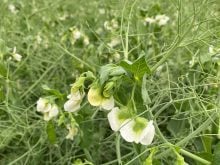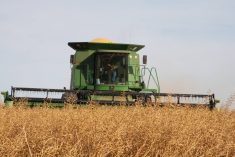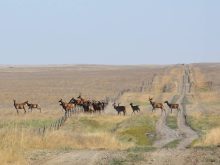An agricultural biotech company has opened an enrolment program for farmers interested in growing genetically modified winter camelina.
Yield10 Bioscience chief executive officer Oliver Peoples said farmers can realize significant benefits from growing the oilseed as a winter crop, including soil health, nutrients, structure and improved moisture.
When spring begins, he said, the crop takes only a few weeks before it’s ready for harvest and requires little water to grow. After trapping snow all winter and being harvested in the spring, the next crop can be sown into greater moisture.
Read Also

Bunge’s crop mix is changing
Bunge has predominantly been a soybean processing firm, but that’s about to change after the merger with Viterra with softseed processing and grain merchandising gaining ground.
“What we want is the growers to build this up as a large acreage crop, where they can see sustained long-term value generation,” Peoples said.
“Something that allows them to diversify, gives them optionality outside of the normal growing season.”
He said the possibility of earning a harvest profit during the high heat of summer is something that interests farmers. Winter camelina will typically be harvested before the heat of July and August, avoiding burnout.
Peoples also said farmers have been intrigued by the oilseed’s resistance to black spot, blackleg and various root diseases, as well as flea beetles in some genetic variations.
The program for Yield10’s winter camelina will be made available for farmers in Alberta, Saskatchewan, Montana, and Idaho this fall as it tries to establish camelina as a large-acre crop in North America.















